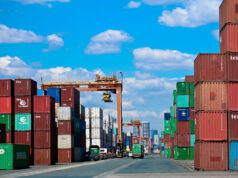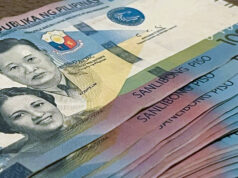Consumer spending growth to slow but remain strong — ANZ
CONSUMER SPENDING could ease in response to rising commodity prices due to tax reform, an analyst at ANZ Research said, even as the Finance department maintains that the higher taxes should have a “minimal” impact on inflation.
“Domestic demand is strong and is likely to remain so. However, the risk of some moderation in consumption growth remains,” ANZ Research economist Eugenia Fabon Victorino said in a report published on Wednesday.
Republic Act No. 10963, or the Tax Reform for Acceleration and Inclusion Act (TRAIN) that took effect last month, introduced additional taxes on fuel, cars, coal, sugar-sweetened drinks and a host of other items.
Ms. Victorino said higher and new levies could dampen growth of domestic consumption, despite bigger disposable incomes from a parallel cut in personal income tax rates.
“While take-home pay is higher for taxpayers, non-tax payers are facing higher prices. In the past, for every one percent increase in headline prices there was a corresponding decrease in private consumption by 0.3%,” Ms. Victorino said.
Household consumption accounts for about 70% of national output. The government hopes to boost gross domestic product (GDP) growth to 7-8% this year from 6.7% last year, 2016’s 6.9% and a 6.2% average in 2010-2015, partly on the back of infrastructure spending that will rise to P1.84 trillion, equivalent to 7.3% of GDP, in 2022, when President Rodrigo R. Duterte ends his six-year term, from a planned P1.098 trillion this year or 6.3%.
TRAIN is widely believed to have been responsible for the auto sales growth slowdown to four percent last month from a 27% increase a year ago.
Government officials and economists have also pointed to TRAIN as a key driver of January’s price spikes that fueled annual inflation to a three-year-high of four percent that touched the ceiling of the central bank’s 2-4% target range for the entire 2018.
January’s faster-than-expected inflation, coupled with expectation of second-round effects like hikes in public transport fares and minimum wage, has prompted the Bangko Sentral ng Pilipinas to raise its 2018 inflation forecast to 4.3% from 3.4% previously.
ANZ Research expects inflation to average at 4.1% this year, before slowing to 3.4% in 2019.
‘MODERATE’
For its part, the Department of Finance (DoF) said tax reform is not expected to fuel inflation further.
In an analysis report sent to reporters, DoF Undersecretary Karl Kendrick T. Chua said TRAIN “can potentially increase inflation by up to 0.7 percentage points (ppt) in 2018,” with food prices to rise by as much as 0.3ppt and transport fares by 0.1ppt.
“This is very minimal and manageable, especially compared to the savings from lower income taxes,” Mr. Chua said.
Turning to last month’s inflation rate, the official said the higher reading was partly due to base effects as inflation clocked 2.7% in January 2017.
He added that retailers were likely still selling old stocks last month which were not covered by higher or additional taxes imposed on several products.
“Since the tax increase was not expected in the first half of the month due to sale of old stock, we can surmise that profiteering is a major reason for the higher-than-expected inflation. We expect this to ease in the coming months as the government intensifies monitoring of prices and as the markets adjust,” Mr. Chua said.
He noted that January’s faster inflation likely resulted from “better compliance” with tobacco tax rules, particularly citing higher cigarette prices charged by Mighty Corp. to reflect right taxes paid by its new owner, Japan Tobacco International (Philippines), Inc.
Tobacco inflation stood at 17.4% last month, against an eight percent increase prescribed by law.
On the whole, the DoF said these price upticks are likely to be temporary.
“At almost four percent, the January inflation rate is considered moderate,” Mr. Chua said.
“As the inflation target is set by the BSP for the whole year, one month of higher inflation is not a concern.” — Melissa Luz T. Lopez



